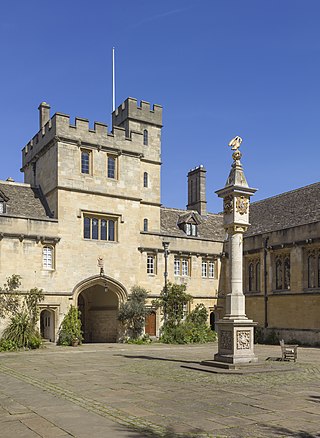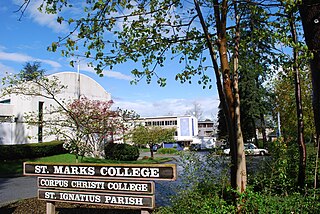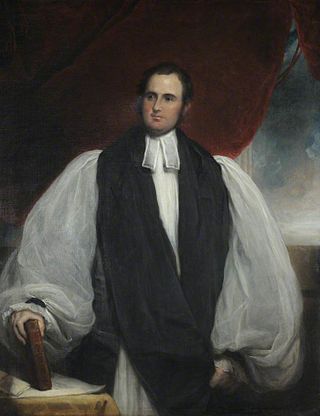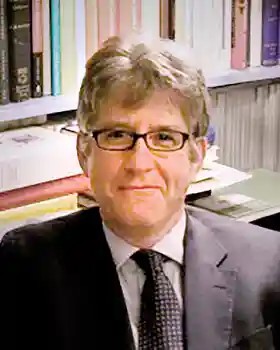Related Research Articles

Corpus Christi College is one of the constituent colleges of the University of Oxford in the United Kingdom. Founded in 1517, it is the 12th oldest college in Oxford.

Corpus Christi College is a constituent college of the University of Cambridge. From the late 14th century through to the early 19th century it was also commonly known as St Benet's College.

Thomas Randolph D.D. (1701–1783) was an English academic, President of Corpus Christi College, Oxford, and Christian theologian.
John Claymond (1468–1537) was the first President of Corpus Christi College, Oxford.

Corpus Christi College (CCC) is a college affiliated with and situated on the campus of University of British Columbia (UBC). The college offers classes in arts, business, and science in small class sizes with close student-faculty interaction.
Sir Richard Winn Livingstone was a British classical scholar, educationist, and academic administrator. He promoted the classical liberal arts.
Nigel Simmonds is Emeritus Professor of Jurisprudence at the University of Cambridge and former Dean of College at Corpus Christi College, Cambridge.
John Cooke D.D. (1734–1823) was an English academic administrator at the University of Oxford.
John Mather D.D. was an English academic administrator at the University of Oxford.

James Bowstead (1801–1843) was an Anglican clergyman who served in the Church of England as the Bishop of Sodor and Man (1838–1840) and Bishop of Lichfield (1840–1843).

Michael George Brock was a British historian who was associated with several Oxford colleges during his academic career. He was Warden of Nuffield College, Oxford, from 1978 to 1988.
John Copcot, DD was an English cleric and academic, becoming Vice-Chancellor of the University of Cambridge and Master of Corpus Christi College, Cambridge.
John Lovett Watts is an English historian specialising in the political history of late-medieval England. Born on 29 September 1964, he studied for his PhD under Christine Carpenter, researching politics and the English constitution during the reign of King Henry VI, which was awarded in early 1991. He had joined Merton College, Oxford, the previous year as a junior research fellow, and from there became a lecturer at the University of Aberystwyth. He returned to Oxford in 1997, joining Corpus Christi College as a fellow and tutor in medieval history. He has described the context of his interests – Henry VI – as "a famously useless king, who came to the throne as a baby and ruled with astonishing inertness for a further thirty-nine years". He is now professor and a fellow of the Royal Historical Society.

Mark Whittow was a British historian, archaeologist, and academic, specialising in the Byzantine Empire. He was a university lecturer at the University of Oxford and a Fellow in Byzantine Studies at Corpus Christi College, Oxford.
Ezechiel Webbe was an Anglican priest in Ireland at the end of 17th and the beginning of the 18th centuries.
George Derek Gordon Hall, FBA was President of Corpus Christi College, Oxford, from 1969 until his death.
Thomas Edward Bridges, D.D. (c.1783–1843) was an Oxford college head in the 19th century.
John Holt, D.D. was an Oxford college head.

Corpus Christi College Boat Club (Oxford) (CCCBC) is a rowing club for members of Corpus Christi College, Oxford. It is based on the Isis at Boathouse Island, Christ Church Meadow, Oxford, Oxford.
References
- ↑ British History On-line
- ↑ Alumni Oxonienses, 1500-1715 (Surnames Greenhill-Gysby)
- ↑ "A History of the University of Oxford Including the Lives of the Founders" Chalmers, A. p480: Oxford; Collingwood & Co;1810
